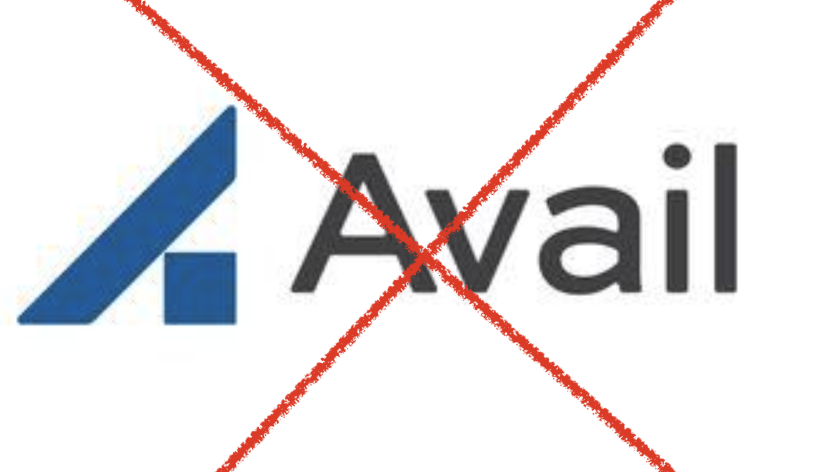
Wow! This is a big one!
This big casualty resulted because of runaway expenses and lack of focus. Once again, too much money, not enough focus.
Avail Medsystems was a company founded in 2017 that created a surgical telepresence platform aimed to connect surgeons and care teams to remote experts and device industry representatives to enable collaboration during medical procedures. It allows users to access views from multiple pan-tilt-zoom cameras and external imaging equipment, split the screens to view inputs side by side, annotate, freeze frames, etc. The company also offers consoles that allow the treating physician and other local healthcare professionals to see everything the remote user displays in real-time.

I interviewed the CEO @ Avail on my blog back in 2020 – 6 Questions with Daniel Hawkins, CEO at Avail, who is transforming the way orthopedic procedures will be supported.
I also interviewed the CEO @ Avail on my podcast – #37 – The Future of Surgery Support with the Avail CEO, Daniel Hawkins (60 mins)
Avail raised $128M through Series B before shutting down in Nov 2023.
Avail Medsystems abruptly shuts down (MassDevice)
Avail Medsystems — which emerged from the pandemic as one of the leading companies building virtual connections between medical device sales reps and operating rooms — has shut down.
Multiple sources have confirmed yesterday’s shutdown to MassDevice.
People familiar with the company say Avail failed to close on a new round of capital necessary to maintain its growth. Employees were notified about the immediate shutdown yesterday afternoon.
The news is surprising. Avail Medsystems appeared to be on a fast pace to place its system in hospitals nationwide. Avail’s system consisted of a six-foot-high tower equipped with high-resolution cameras, monitor and sound that connected parties separated by feet, miles or oceans. The company’s cameras provided a crisp and clear view of surgical suites. The built-in speakers enabled seamless conversation between surgeons and outside parties working on a proprietary laptop interface. Avail also had been busy working to expand applications for the system beyond giving medical sales representatives remote access to operating rooms.
Company executive contacted declined to comment, so the future of the Avail telepresence product isn’t clear.
CEO Daniel Hawkins, the sixth employee at Intuitive and a co-founder and former CEO of Shockwave Medical, told Avail’s story during recent podcast interviews and conference sessions, most recently at DeviceTalks West on Oct. 18 at the Santa Clara Convention Center.
Here’s what Avail Medsystems’ CEO said about the company in previous conversations
Hawkins founded the company in 2017 with the vision of creating digital connections between physicians and medical device companies.
Hawkins tied the origin of the idea to an overnight trip he’d made to New Zealand to observe three procedures in an early clinical test of a device he was developing. After arriving at the airport, “I went straight to the procedure room, did three procedures, had dinner, and I flew home,” he said. “It was nuts.”
Hawkins said he came to recognize that so much of the medical device business – procedures, training, clinical trials, even engineering research – happened in the operating room. He set out to create a new channel between industry and the OR.
Hawkins’ vision showed foresight when the pandemic shut down hospitals, keeping medical sales reps out of the operating room. Medical device companies eager to retain contact with physicians began searching for alternatives. Avail emerged as the leader of the pack, raising $100 million in a Series B in October 2020. The company previously raised $30 million in two earlier rounds.
As the pandemic lifted, Avail and other companies positioned themselves as more than just a quick fix to an accessibility problem brought on by pandemic protocols. Sales reps could get back into hospitals, to be sure. But many surgeries were moving out of hospitals into ambulatory surgery centers, small, self-standing surgical clinics. “When I started my career in 93, there were about 5000 hospitals, maybe 5500, and maybe 1000 ASCs,” Hawkins said. “Now there’s probably 5,000-5,500 hospitals and depending on whose numbers you look at, 12,000 ASCs.”
While the sites for surgeries more than doubled, the number of procedures and the medical device sales forces haven’t kept pace, he said. So surgical procedures are spread across broader geographies, giving medical device sales reps larger territories to cover. Hawkins saw the Avail system as providing efficiencies of scale, allowing medical sales reps to cover procedures in multiple sites without leaving their office.
Avail seemed to answer many of the challenges facing hospitals. Avail took the financial difficulties facing hospitals into account. It didn’t charge hospitals to buy our maintain equipment. The hospitals would pay for the time surgeons used the console. The plight of rural hospitals, which are seen as receiving less access to training and new technologies than their big city counterparts, also opened the door for a virtual connection.
Avail was showed signs of growth. Revenue figures aren’t available. But at DeviceTalks West two weeks ago, Hawkins indicated the company had expanded its reach to over US 1,100 centers in the US and was beginning to have conversations with OUS facilities as well.
The company sought medical device companies as customers who would help pay for a hospital’s costs of the virtual connections. Last year, the company announced an arrangement with Medtronic Neurovascular in which the medical device company would pay for surgeon access to the Avail systems placed in stroke clinics and hospitals. Surgeons were free to use the systems to collaborate with other surgeons, but they could only speak with Medtronic sales reps on the system. Hawkins said Medtronic sales reps reported an increase in business as a result. At DeviceTalks West this month, Hawkins indicated the company was also in conversations with medical device companies interested in replicating a partnership with companies focused on other specialties.
In addition to connecting sales reps with surgeons, Avail expanded the use of the Avail system, positioning it as a tool medical device engineers could use to observe surgeries that they might not otherwise have access to. Hawkins saw this as a tool that would streamline medical device innovation. “Engineers need to go in to learn and be able to understand what problems are so that they can design properly,” Hawkins said on a recent DeviceTalks Weekly podcast.
Going back to Hawkins’s original inspiration, Avail was also marketing its system as a way for medical device companies to run clinical trials virtually, reducing the need for clinical specialists to travel. Clinical trial studies could be more easily monitored by medical device company representatives through the Avail system, the company said.
Avail’s system seemed to answer many of the demands being put on healthcare systems and medical device companies. But the potential growth apparently wasn’t enough to entice investors to commit more capital.

 Tiger Buford – retained recruiter dissecting orthopedics
Tiger Buford – retained recruiter dissecting orthopedics